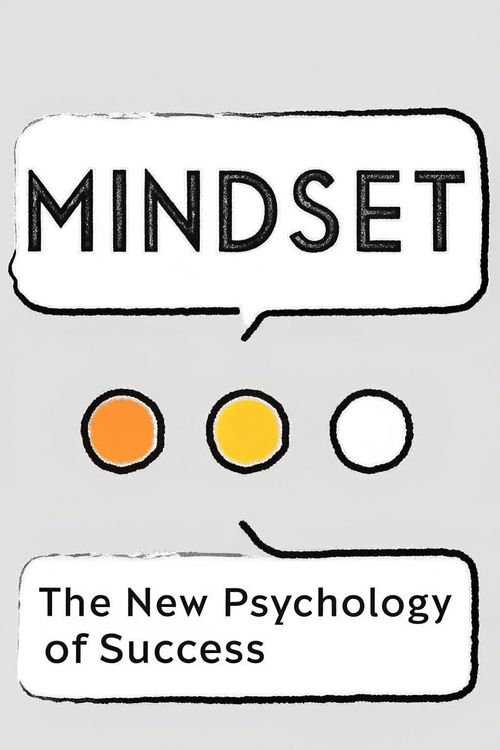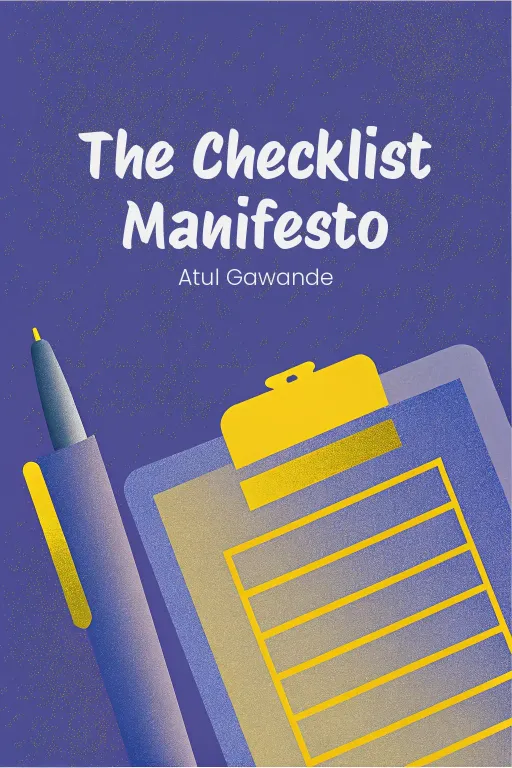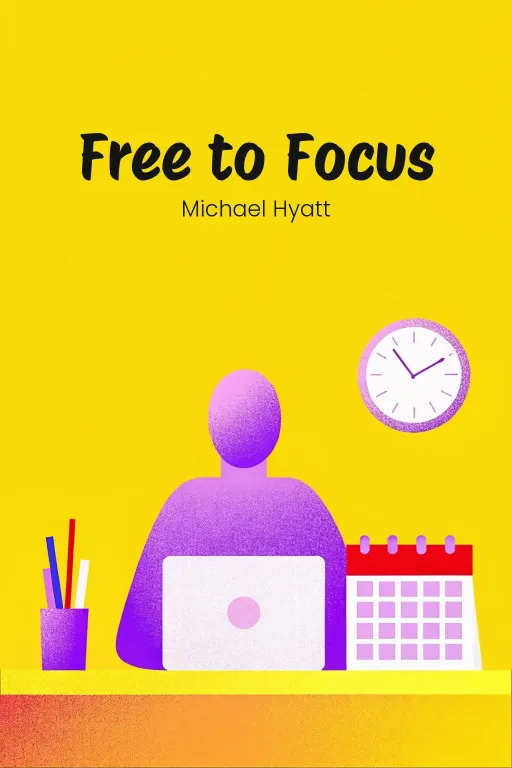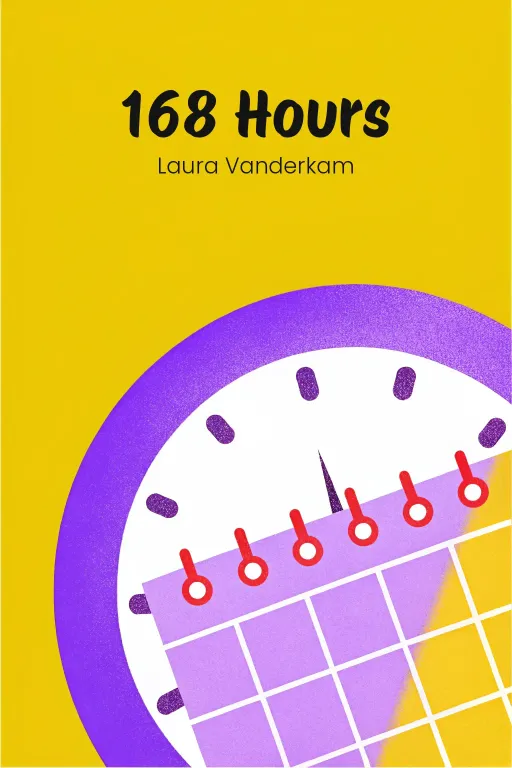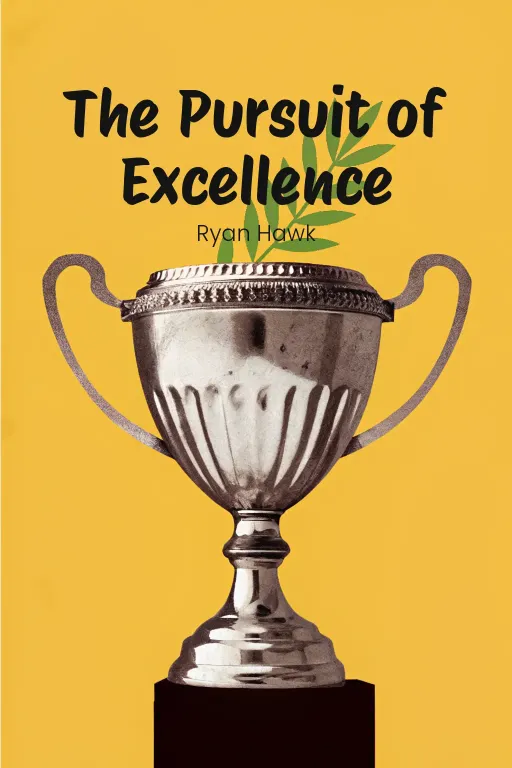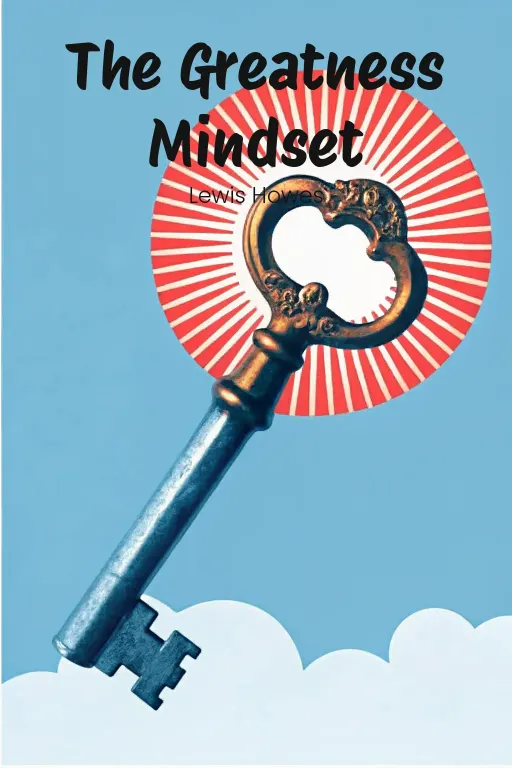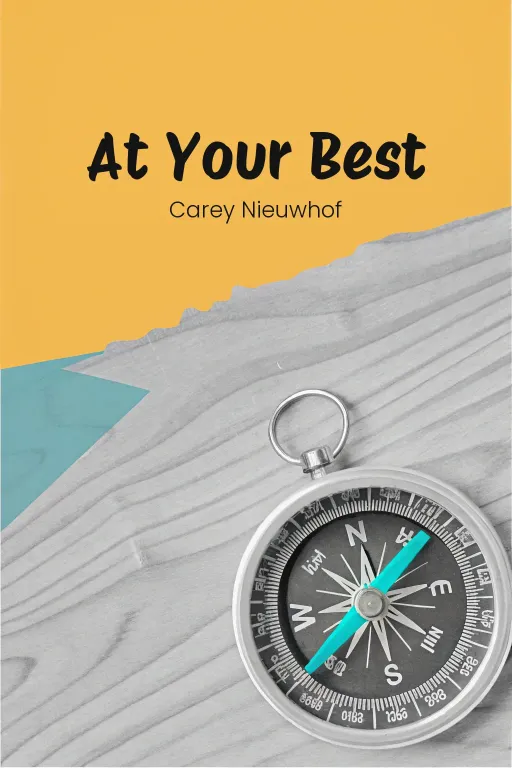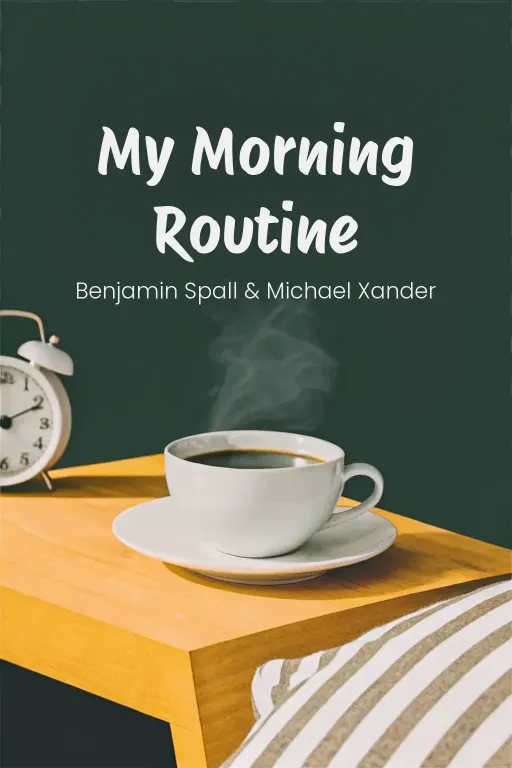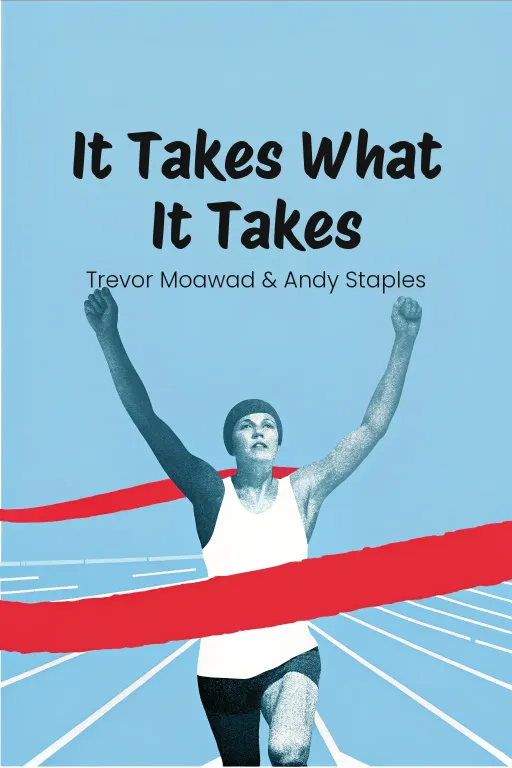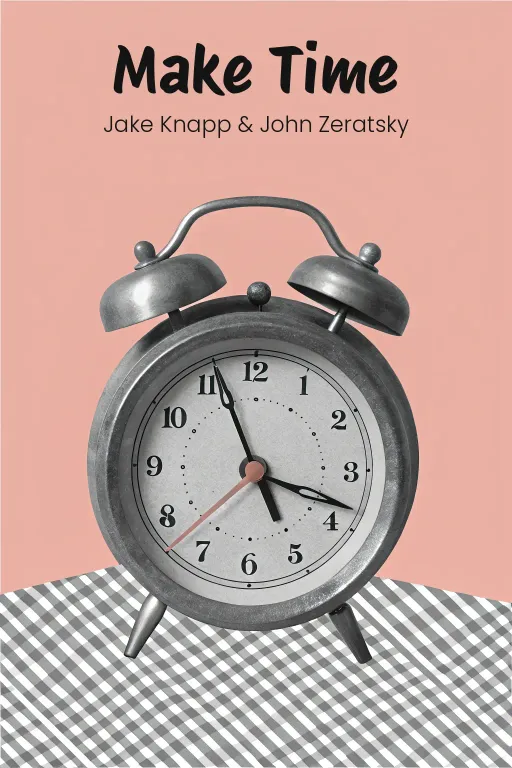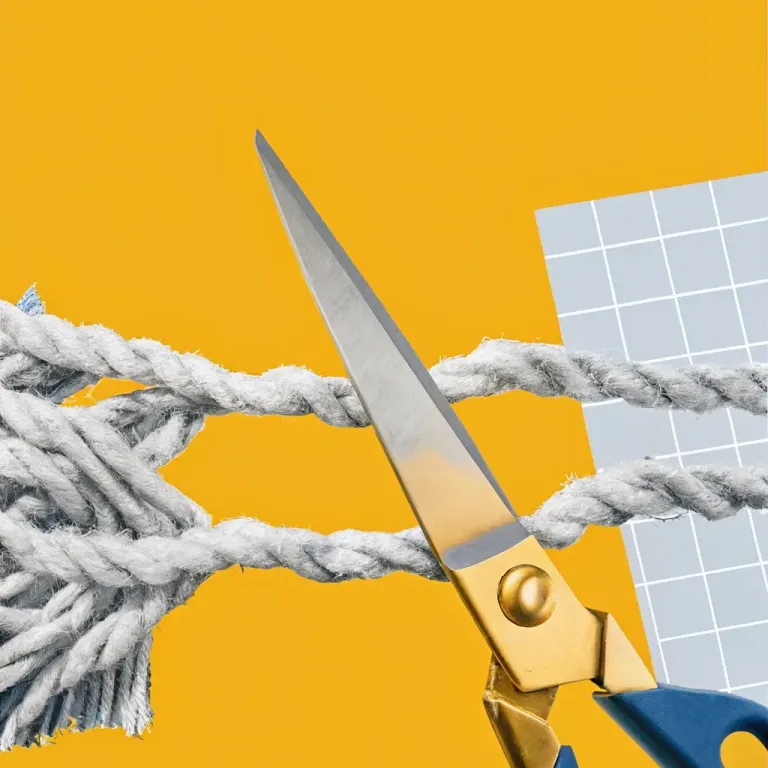
Ditch the Grind: Reclaim Your Time & Energy
Podcast by Beta You with Alex and Michelle
A Total Productivity System to Achieve More by Doing Less
Ditch the Grind: Reclaim Your Time & Energy
Part 1
Alex: Hey everyone, welcome to the show! Michelle, let me kick things off with a question for you: You ever get to the end of the workday, completely drained, and think, "Wait, what did I actually “do” today?" Michelle: Ugh, tell me about it. It's like, I answered a zillion emails, attended countless meetings… but what progress did I really “make”, you know? Feels like a hamster wheel sometimes. Alex: Exactly! That's the problem with so much of what we call "productivity" – it's often just thinly veiled busyness. And that's where Michael Hyatt's Free to Focus comes in. It basically throws out the old productivity playbook and helps you zero in on what truly matters. The best part? It helps you align your work with your personal goals and values. Michelle: I'm intrigued, but realistically, escaping that busyness vortex is tough. How does the book actually help you break free? Alex: Well, it's built around a three-step framework: Stop, Cut, and Act. Hyatt walks you through pausing the chaos, eliminating distractions, and then focusing your energy where it has the most impact. Plus, he gets into practical strategies like managing your energy levels, designing your ideal week, and delegating like a boss. Michelle: Okay, you've got my attention. So, what are we diving into today specifically? Alex: We're going to unpack three key things. First, why traditional productivity methods often fail us and how this whole "busyness equals worth" myth holds us back. Second, how you can actually reclaim control of your time using the "Stop, Cut, Act" framework. And finally, how to sustain meaningful productivity, so it becomes a long-term lifestyle, not just a temporary sprint. Michelle: A roadmap to ditch the busywork and find actual freedom? I'm in. Let's do this!
The Problem with Traditional Productivity
Part 2
Alex: Okay, so let's dive into the problems with traditional productivity, this idea that being busy equals being successful. Michael Hyatt does a great job of pointing out how harmful this way of thinking can be. We tend to believe that if we're always moving, constantly ticking things off our to-do list, we're being productive. But, honestly, most of the time we're just running in circles. Michelle: Totally. It's like one of those hamster wheels at the gym, isn't it? You're expending energy, sure, but you're not actually getting anywhere. What I found particularly insightful about Hyatt's take is how he links this "busyness equals success" idea to stress and burnout. That story about the publishing executive who thought he was having a heart attack? That was definitely a wake-up call. Alex: Oh, definitely. Imagine sitting there in a restaurant, thinking you're having a heart attack, only to find out it's just stress-induced acid reflux. The man wasn’t just managing deadlines – he was letting them completely control him. And Hyatt emphasizes that he's not alone in this situation. The constant pressure to perform creates a culture where people sacrifice their health, their relationships, and even their happiness for the sake of being busy. Do you think it’s worth it? Michelle: Scary how relatable it is, right? We've somehow made it normal to answer emails during dinner with our families, or take work calls while we're on vacation. It's like we've all collectively decided that being "always on" is just the price we have to pay to succeed. But Hyatt's right – that's not real productivity. That's just… performance. Alex: Precisely. Hyatt mentions some research showing that almost half of what we do at work is essentially "fake work"—stuff that keeps us occupied but doesn't actually achieve anything meaningful. Think of all the time wasted in pointless meetings, or answering emails that people will have completely forgotten about by the afternoon. Michelle: Oh, tell me about it. And there's that statistic you mentioned earlier about getting interrupted every three minutes. How are we supposed to get anything done? It’s like trying to write a novel in a crowded, noisy cafe while people keep interrupting you every few seconds. No focus, absolutely no depth. Alex: Exactly, and that lack of depth doesn't just affect individuals—it has huge economic implications. Hyatt notes that U.S. office workers lose up to six hours a day on tasks that add little value, which costs the economy over a trillion dollars every year. That's enough to make anyone rethink their daily work routine, right? Michelle: True, but it's tough, because it's not always easy to tell what’s high-value and what's just a distraction. I mean, isn't responding to emails promptly and attending meetings part of, you know, doing our jobs? Alex: That's a great point, but it really comes down to impact. Hyatt urges us to stop asking, "What's urgent right now?" and start asking, "What will have the biggest long-term impact?" Like, a badly run meeting might tick the "being present" box, right? But if there are no clear decisions made and no one really knows what to do afterwards, then it’s just noise. Michelle: Yeah, that makes sense. It's like spending all day rearranging books on shelves in a bookstore instead of actually helping customers find what they want. It looks productive, but it doesn't actually contribute to the bottom line. Alex: That's a brilliant analogy! It highlights the difference between just being active and being intentional. Hyatt also argues that sticking with this chaotic pattern actually robs us in deeper ways. He found that almost half of people feel they don't have time to pursue their passions or dreams because they're just too worn out by their daily grind. Michelle: That hits home. Think about what gets lost on a societal scale—writers who never finish their books, parents who miss out on time with their kids because they're glued to Slack. You know, it's not just about time, it’s about emotional investment. Alex: Exactly, and that’s Hyatt's key point. He really forces us to confront the question, "What dreams are you giving up on because of distractions and demands?" For so many of us, the relentless busyness is blocking the path to what we really value. Michelle: It's not just a personal problem. Organizations are often part of the problem, too. I've definitely worked in places where being the last one in the office was rewarded, no matter how inefficient or exhausted people were. If we want to change this, it's going to take a collective effort. Alex: Absolutely. And that's Hyatt's call to action. He's not just asking us to question the conventional norms, he's encouraging us to replace them with something better. Imagine if companies valued focus more, or if leaders helped their teams pinpoint high-impact activities instead of just piling more work on them. Michelle: I really like that word you used earlier—intentionality. Sounds simple, but it's such a rare mindset in today’s workplace. Shifting from just doing a lot to focusing on value… that’s a pretty radical idea, but it’s essential. Alex: Precisely. And making changes like this isn’t just about doing less, it's about making smarter choices. Traditional productivity fails because it focuses on output instead of outcomes. That's why Hyatt's approach starts with deliberately slowing down. That’s where real transformation begins—having the courage to step off the autopilot and design a better way of doing things.
The Productivity Framework: Stop, Cut, Act
Part 3
Alex: So, all of that naturally sets us up to explore a more structured approach to productivity. Michael Hyatt's framework—Stop, Cut, Act—it's really about translating theoretical ideas into concrete actions that we can actually use every day. Think of it as a plan to move away from that feeling of running in circles and towards a more sustainable and meaningful way to be productive, one that actually fits with our priorities. Michelle: Okay, interesting. Stop, Cut, Act – three simple words that kind of hint at a whole new way of thinking about things. So, where do we even begin to unpack this? Alex: Let's start with the first step: Stop. Now, it might sound a bit strange at first, but Hyatt insists that before diving into anything, it's crucial to pause. We're not talking about stopping everything mid-task, but rather intentionally stepping back to evaluate, clarify goals, and make deliberate choices. Michelle: Right, so "Stop" is like calling a strategic timeout. You know, like when a sports team needs to regroup and figure out what's not working before they try the next play. So, how exactly do you put this "Stop" into practice in the real world? Alex: Well, it starts with defining what "productivity" means to “you”. Hyatt argues that productivity isn't just about filling your day with endless tasks; it's about achieving meaningful outcomes that align with what you value. He really encourages you to pause and ask yourself: what are my core values? What truly deserves my time and attention? Michelle: Okay, I get it. That makes sense in theory, but it also sounds like one of those potentially endless "self-reflection" exercises where you're just staring at a blank page, wondering what to write. Is there a more concrete way to figure out what your values are? Alex: Absolutely! Hyatt suggests starting by listing your top five personal values. Then, map out how your current commitments either reflect those values, or, where they fall short. Think of it like a life audit. For example, if "family" is a core value, but you're constantly stuck in late meetings, missing dinner, that gap should definitely make you rethink things. Michelle: Got it. So, it seems like identifying these mismatches is the first step. But then what? Just knowing I'm off track doesn't magically free up my schedule. Alex: Exactly, and that's where the next part of the "Stop" step comes in, which is evaluating your tasks. Hyatt talks about separating high-leverage activities from low-value distractions. Tasks with "high-leverage" give you significant results with focused effort. Low-value tasks? They just create noise. Michelle: Yeah, I actually like the idea, but can you run me through an example? Because, let's be honest, it's easy to say something is "low-value," but it's not always so obvious. Alex: It's actually clearer than you might think! Hyatt shares the story of a manager who tracked his daily activities. Turns out, he was spending hours in pointless status update meetings. Once he realized how little value they added, he cut them back and used the extra time to mentor his team and plan more strategically. Small change, big impact. Michelle: Interesting. So, it's not just about cutting things randomly, but really targeting what drives real results. But what about tasks that might seem low-priority to me, but are non-negotiable for someone else, like my boss? Alex: That's a great point, and Hyatt understands that. That's where tools like task prioritization matrices or time tracking apps can come in handy. By getting an objective view of where your time actually goes – and comparing it to your goals – you can make informed adjustments to manage both your priorities and others' expectations. Michelle: Okay, I see how this helps sharpen focus. But let's talk about the big issue: burnout. Even after you’ve re-evaluated tasks, most people can’t just change things overnight. How does Hyatt address the inevitable fatigue that comes from years of overworking? Alex: Well, that’s really the third part of the "Stop" phase: rejuvenation. Hyatt actually challenges our cultural norms by saying – and I love this – that rest isn’t a break “from” productivity, it’s actually a “part” of it. Michelle: So… are you saying we are now allowed to nap? That's a productivity plan I can get behind. Alex: you're joking, but seriously! Hyatt uses research to show that breaks and quality sleep actually boost creativity, stability, and overall performance. He talks about an executive who was completely burned out. Simple changes – like a 20-minute walk and an hour of "digital detox" before bed – completely revitalized their workday. So, the lesson? Rejuvenation is really the secret weapon for long-term success. Michelle: Okay, that actually shifts my perspective. Not grinding constantly doesn’t mean you're lazy; it’s about protecting your energy for what matters. But how do you make rest sustainable? Because let's be real, most of us just crash for a weekend and then jump right back into the chaos on Monday. Alex: It’s all about making rest part of your routine. Hyatt suggests scheduling active recovery, like planned breaks or leisure activities, into your calendar – just like you would with meetings. Over time, these practices become habits, sustaining your energy instead of those burnout and recharge cycles. Michelle: So Step 1 – Stop – isn’t just about halting activity; it’s about recalibrating your approach to everything. Rest, aligning values, and ditching the fluff—it’s like laying the groundwork for building a house. Alex: Exactly! And that groundwork really sets the stage for Step 2: Cut. That's where Hyatt brings out the metaphorical pruning shears to eliminate distractions and excess. We'll dig into how to trim the noise in our work and lives to really make space for what’s truly important.
Designing a Life of Focus and Freedom
Part 4
Alex: So, once you've got this solid framework going, the conversation naturally turns to how you actually “maintain” it. Hyatt takes everything we’ve talked about and elevates it into something bigger, you know? A real lifestyle shift, connecting your productivity to your personal growth and well-being. He’s not just teaching task management; he’s showing you how to design a life with both focus and freedom. Michelle: “Designing a life of focus and freedom,” huh? Sounds great on paper, but the question is, how do you actually “do” that? How do you bridge the gap between theory and actually living a life where you're both fulfilled and productive? Because, let's be real, that's the dream, right? Alex: Exactly. And that bridge is built with tools like the Ideal Week and the Freedom Compass. They really help you structure your time and make sure your tasks are in line with your strengths and passions. It’s about ensuring that every aspect of your life reflects your values—not just in theory, but in day-to-day practice. Michelle: Okay, this Ideal Week idea keeps popping up. Let’s dive in. What is it, exactly? Is it just another to-do list, but, like, color-coded or something? Alex: Not at all. It's actually about giving you structure without being super rigid, you know? It's basically pre-planning your time by assigning specific themes or purposes to different blocks of the week. It's proactive. So, instead of just reacting to every email, request, or crisis as it hits you, you already know what your focus should be at any given time. Michelle: So, I can finally stop playing that mental game of Whac-A-Mole every freakin' hour? Okay, I'm intrigued. But what's stopping this "Ideal Week" from crumbling the instant life throws a curveball? Because, let's be honest, life “always” throws curveballs. Alex: That’s where the magic lies—it’s a guide, not a prison. Hyatt emphasizes that flexibility is key. But here's where it’s different from a random to-do list: it really prioritizes Front Stage and Off Stage activities. Front Stage is your high-impact, core work. Off Stage is the rest and rejuvenation we often skip. Structuring your Ideal Week guarantees you make space for both. Michelle: Front Stage, Off Stage... Alright, walk me through an example, because I'm trying to visualize this for people who don't have typical nine-to-five jobs, you know? How does this work for, say, teachers or parents juggling utter chaos, not just corporate spreadsheets? Alex: Good point. For a teacher, mornings could be Front Stage, dedicated to, say, lesson prep and engaging with students – the stuff that really fuels their passion. Afternoons could be for grading or those administrative things, less energizing but still necessary. And evenings? Purely Off Stage, unwinding with family or diving into a hobby. It's about setting intentional boundaries. Michelle: Got it. It's not about scheduling every single minute, but understanding the purpose of each time block. Like, scripting time for the different roles you play. And what about rest? How does Hyatt convince those of us who still think pushing harder is the only way? Alex: Rest is totally non-negotiable in Hyatt's world. He argues—and science agrees—that scheduled Off Stage time is crucial for everything from your creativity to your physical and emotional health. Like, Hyatt blocks off weekends for "digital detox" with his family. No work emails, no office drama, just reconnecting and relaxing. Michelle: That’s probably the hardest part for most people—actually disconnecting. There’s this weird guilt that if you're not "on," you're letting something—or someone—down. Alex: Totally! But Hyatt kind of flips that script. He says, think of rest as fuel, not indulgence. Without refueling, you’ll hit diminishing returns, period. A fried brain doesn’t work, and neither does a fried body, right? It’s putting your own oxygen mask on first. Michelle: Okay, I'm on board with planning rest. But zooming out, for people who “still” feel overwhelmed, even with these structured weeks, how do you decide what to let go of? You can only rearrange so much, right? Alex: Exactly, and that's where the Freedom Compass comes in. This helps you really focus by evaluating all your tasks and putting them into four zones: Desire, Drudgery, Distraction, and Disinterest. The idea is to ditch or delegate anything that's “not” in the Desire Zone—tasks that vibe with your passions and skills. Michelle: Desire Zone – that's the work that feels fulfilling “and” effective, right? So how do you actually spend “more” time there? What do you do with everything else? Alex: Delegation becomes key. Take the Drudgery Zone: things you hate doing and aren't good at, like, I don't know, financial spreadsheets if you're more strategy-minded. Delegating those frees you up to focus on your strengths. And anything in the Distraction Zone – where you're passionate but not skilled – that's usually worth cutting or delegating, too. Michelle: Okay, be honest, what if “nobody” wants the Drudgery Zone stuff? Spreadsheets aren’t exactly high in demand. Alex: Funny thing is, what drains you might actually energize someone else! Hyatt talks about executives hiring detail-oriented bookkeepers or customer service managers who thrive in tasks their leaders find exhausting. It's a reminder that collaboration isn't just practical, it’s strategic. Michelle: Fair enough. Sounds like mastering this Compass takes time. You've got to really figure out what’s in each zone and be disciplined about making adjustments, right? Alex: Exactly. It’s all about regular refinement. Like, every quarter or so, you reassess: What’s creeping into the Drudgery Zone? What new things fit into the Desire Zone? It's not about perfection, just progress. Michelle: So, between the Ideal Week and this Freedom Compass, you're essentially creating space for focus and flow. But how about managing energy? Because even the best-laid plans fall apart if you’re too exhausted to function. Alex: Energy management is the foundation of all of this. Hyatt doesn’t just tell you to optimize your time; he highlights seven practices to make sure your energy matches your goals. Things like sleep, nutrition, exercise, meaningful social connections, and even mental breaks. Michelle: Sounds....ambitious. Real talk: most of us run on caffeine and maybe five hours of sleep. How does Hyatt suggest changing that without feeling totally overwhelmed? Alex: It’s all about tiny steps. Hyatt suggests simple tweaks, like blackout curtains for better sleep or even 15-minute movement breaks during the day. He emphasizes how even small changes can have big ripple effects, boosting your clarity and focus. He tells this great story about a professional who prioritized walks during lunch and went from mid-afternoon crashes to having sustained energy all day. Michelle: Interesting – a lot of this sounds like common sense, but when you tie it back to focus and freedom, it changes your perspective. It's not just self-care, it's productivity-care, too. Alex: Exactly! And that brings us back to the big picture: productivity isn't just about doing more, it's about getting better results while also honoring what matters most to you. With tools, refinement, and energy management, you're building something sustainable—not just for your job, but for your overall well-being. Michelle: Okay, I see where this is going. It's not about running yourself ragged for short-term wins. It's about living – and working – more intentionally, with enough space to actually breathe and succeed. Alex: That’s the core of it, Michelle. Designing a life of focus and freedom is about mastering both the art of “doing” and the discipline of just “being”. Finding that balance? That's where the magic happens.
Conclusion
Part 5
Alex: Wow, we really went deep today! From debunking those old productivity myths, to unpacking Michael Hyatt's “Stop, Cut, Act” framework, and all the way to the tools that help us build a life with more focus and freedom. The core of all this, I think, is really about seeing productivity differently. It’s not just about how much you do. It’s about achieving outcomes that actually resonate with your values. Michelle: Exactly! And that's the golden nugget, isn't it? Productivity isn't a frantic sprint to the finish line; it's more like a carefully planned marathon. By taking a breath to reflect, ruthlessly eliminating distractions, and acting with real intention, you're not just creating better work—you're creating a life that actually lines up with what you truly want. Alex: Precisely! And Hyatt doesn't just leave you with the theory either. He gives you the actual tools; things like the Ideal Week, the Freedom Compass, and energy management strategies, which are all practical ways to weave focus and freedom into your daily routine. So, to our listeners out there, what's one thing that you could “stop”, “cut”, or “act” on today to take back your energy and realign with what really matters to you? Michelle: It doesn't need to be a dramatic overhaul, either. Maybe it's just saying "no" to one meeting that doesn't really need you there, or finding just 15 minutes to recharge your batteries. Whatever you decide to start with, remember, it's not about striving for perfection; it's about making progress, one step at a time. Alex: Couldn't have said it better myself, Michelle! Thanks for joining us on this journey today, everyone. We really hope that it inspires you to make those intentional shifts towards a more focused and fulfilling life. Until next time, here's to working smarter, living better, and creating space for what truly matters to you. Michelle: And maybe even squeezing in a guilt-free nap in there, too. See you all next time!
